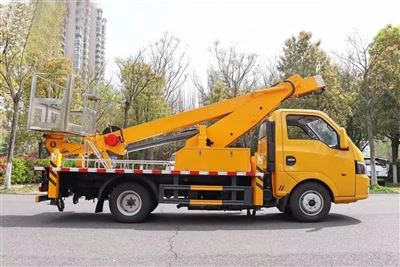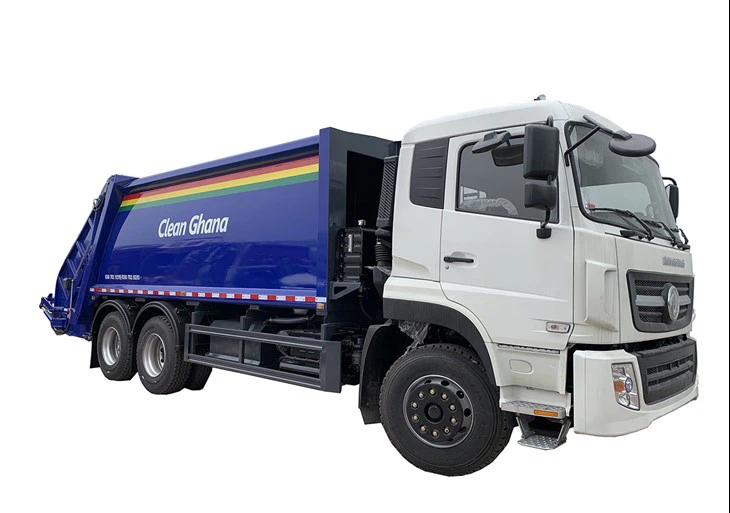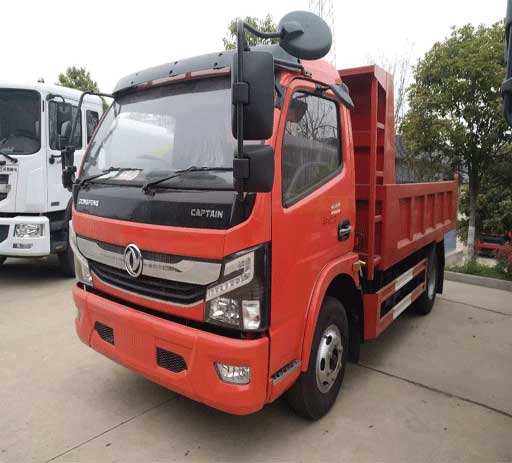Understanding Waste Compactor Trucks: A Comprehensive Guide

Waste compactor trucks play a vital role in modern waste management, optimizing the collection and transportation of waste. This article delves into all aspects of waste compactor trucks, from their design and operation to their benefits and environmental impact.
What is a Waste Compactor Truck?
A waste compactor truck is a specialized vehicle designed for collecting and compressing waste materials. Unlike standard garbage trucks, these vehicles have an integrated compaction system that reduces the volume of waste collected, allowing for more efficient transport and disposal.
How Waste Compactor Trucks Work
Waste compactor trucks utilize hydraulic systems to compress waste. When the truck reaches its collection point, the operator activates the compaction mechanism, which pushes the waste into a compaction chamber. This reduces the volume of waste significantly, making it easier for the truck to carry larger loads.
Key Features of Waste Compactor Trucks

- Compaction Mechanism: Most waste compactor trucks use a hydraulic ram to compress waste materials.
- Capacity: These trucks come in various capacities, ranging from small units for residential use to large trucks for industrial applications.
- Durability: Built from robust materials to withstand heavy loads and tough conditions.
- Safety Features: Equipped with various safety measures to protect the operator and the surrounding environment.
The Benefits of Using Waste Compactor Trucks

Investing in waste compactor trucks offers numerous advantages for municipalities and waste management companies alike.
1. Increased Efficiency
The primary benefit of a waste compactor truck is the increased efficiency in waste collection. The compaction process allows these trucks to carry more waste in a single trip, reducing the number of trips needed to transport waste to disposal sites.
2. Cost-Effective Waste Management
By reducing the volume of waste transported, waste compactor trucks help minimize fuel costs and labor expenses associated with waste collection.
3. Environmental Impact
Waste compactor trucks contribute to a positive environmental impact by lowering greenhouse gas emissions associated with transportation. Fewer trips mean less fuel consumed, resulting in reduced carbon footprints.
4. Flexibility and Versatility
These trucks can be used in various settings, including residential, commercial, and construction sites, making them versatile tools in waste management.
| Benefit | Description |
|---|---|
| Increased Efficiency | Fewer trips needed increases troop efficiency. |
| Cost-Effective | Reduces fuel and labor costs. |
| Environmental Impact | Lower emissions through reduced trips. |
| Flexibility | Applicable in various waste collection scenarios. |
Types of Waste Compactor Trucks
Different waste compactor trucks are designed for various purposes and loads.
1. Residential Compactor Trucks
These trucks are designed for household waste collection. They usually have smaller capacities and are used for more frequent collections.
2. Commercial Compactor Trucks
Commercial models are developed for businesses that generate a larger quantity of waste. These trucks often have higher capacity and more robust construction.
3. Industrial Compactor Trucks
Designed for heavy-duty operations, industrial compactor trucks handle construction debris and other bulky waste materials. They are equipped with powerful compaction systems.
4. Rear-Load Compact Trucks
These trucks are designed for collection directly from the rear, allowing for efficient and effective waste collection from curbside or dumpsters.
How to Choose the Right Waste Compactor Truck
Selecting the right waste compactor truck involves several considerations.
1. Assess Your Waste Volume
Understanding the typical volume of waste generated helps determine the appropriate truck size and capacity.
2. Consider the Waste Type
Some trucks are better suited for specific types of waste, such as construction debris or bulky items.
3. Evaluate the Operating Area
Consider the layout of collection areas. Space constraints may influence the type of truck you choose.
4. Analyze Your Budget
Establish what you can afford, including purchase costs, maintenance, and operation expenses.
Best Practices for Operating Waste Compactor Trucks

To maximize efficiency and safety while operating waste compactor trucks, follow these best practices.
1. Regular Maintenance
Schedule routine maintenance checks to ensure reliable performance and mitigate issues. Regularly check hydraulic systems and tires.
2. Operator Training
Ensure that operators are adequately trained in the use of waste compactor trucks and safety procedures.
3. Optimize Routes
Plan waste collection routes to minimize travel distances and time, reducing fuel consumption.
4. Monitor Load Capacity
Avoid overloading the truck to prevent damage and ensure safe operation.
Future Trends in Waste Compaction Technology
The waste management industry is constantly evolving. Understanding future trends can help businesses remain competitive.
1. Advanced Compaction Technology
New technologies are emerging that enhance compaction efficiency, reducing waste volume even further.
2. Smart Waste Management
Integration of IoT (Internet of Things) allows for real-time tracking and analytics, helping optimize collection routes and schedules.
3. Electric and Hybrid Trucks
The shift toward environmental sustainability is encouraging the development of electric and hybrid waste compactor trucks, which will reduce emissions significantly.
4. Enhanced Recycling Features
Future trucks may incorporate features designed to separate recyclables during collection, improving recycling rates.
FAQs About Waste Compactor Trucks
1. What is the average lifespan of a waste compactor truck?
The lifespan of a waste compactor truck typically ranges from 8 to 15 years, depending on usage and maintenance.
2. How often should a waste compactor truck be serviced?
It is advisable to service a waste compactor truck at least once every six months or as per manufacturer recommendations.
3. Can waste compactor trucks handle hazardous waste?
Most waste compactor trucks are not designed for hazardous waste. Special vehicles are required for transporting such materials.
4. What types of waste are best suited for compaction?
Common waste types suitable for compaction include residential trash, packaging materials, and construction debris.
5. Are there regulations regarding the operation of waste compactor trucks?
Yes, there are various local and national regulations concerning waste collection and transportation that must be followed to ensure compliance and safety.
6. How do I find a reliable waste compactor truck supplier?
Research suppliers, check reviews, and consider industry recommendations to find a reputable waste compactor truck provider.
